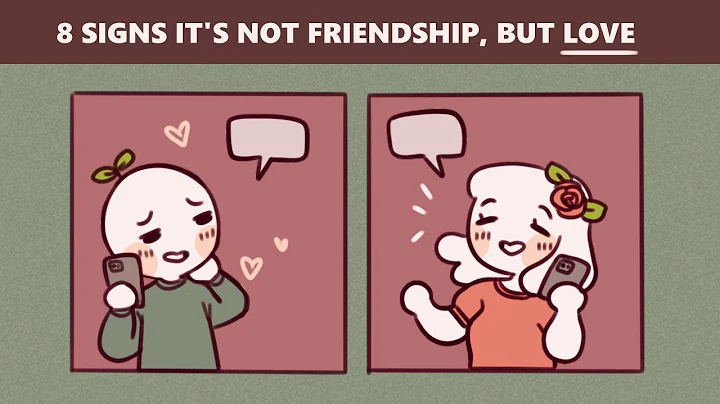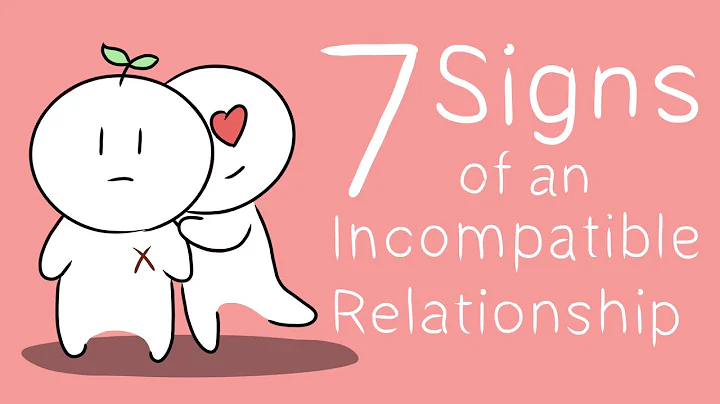What kind of longing did you bring to marry the person who swore to love you for the rest of your life?
What kind of confidence did you shine with when you entered a family that you thought would love you?
Tearing apart the pieces of your past, you finally see clearly your innocence and recklessness. When you got married, you thought it was the result of careful consideration, the reward of hard work and the only inevitable outcome...
But in the process of weaving lies one by one In his dream, you were wearing the purest white wedding dress, enjoying the most solemn blessings ever in your life. When you walked into his life of daily necessities, rice, oil, salt and fireworks, you realized that every corner of his life was waiting for you. Clean it up, you must bear and alleviate the inner conflicts between him and his family!
What did you do wrong? You are just marrying him, marrying the person you think is most worthy of marrying!

It is said that it is easy to fall in love but difficult to get along with each other, but no matter how difficult it is, love is a matter between the two of you. As long as love is there, anything can be resolved between you. But if you marry him and enter his family with his strong love, your love may become the original sin.
For his family, especially his parents, he exists before you. He exists because of them, but you, when their son has just entered adulthood and they can just enjoy the blessing of his son, you Killing you halfway, taking away the fruits of their hard work for half a lifetime without enjoying even a little bit, and asking them to love you like their own children, how can you not hate them?
In the in-law relationship, the subtle relationship between mother-in-law, daughter-in-law, and son-in-law is always going on in a way that you cannot detect. However, we were not aware of all this before we got married. We always believed that our parents would love and tolerate our partners as much as they love us. But the fact may be that you deeply love our partners. To them, the person they love is just a strange intruder and a cruel predator.
opened Susan Forward's "Original Family·Marriage and Love Edition", and we realized that besides marriage, there are so many inner entanglements and psychological conflicts. As one Amazon reader said, "I I wish I had read this book before getting married." Unfortunately, we have already gone through too many detours.
However, it doesn’t matter, it’s not too late to make up for it, and thankfully, we finally read this book in our lifetime. Even if what is lost has been lost long ago, it is not a bad idea to use it to heal the pain of the past. This book will deconstruct the hidden pain of the original family in marriage and family from 5 types of toxic partner parents, and then use constructive methods to help you get rid of all kinds of unnecessary troubles.
1. 5 types of toxic partner parents
1, critical
In this family, anything you do seems to be criticized by your partner's parents, and no matter what you do, the final result is always wrong. You start to feel nervous, walking on thin ice.
2, Possessive
Different from critical partner parents, possessive partner parents have unprecedented enthusiasm for your arrival. They like you even more than their own children. They are eager to participate in any activity in your life. At the same time, I also hope that you will not be absent from any activity in their lives, otherwise, they will be very sad. If you reject your partner's parents' "good intentions" and make them feel sad, your partner may also blame you and express disappointment in you.

3, Controlling
Controlling partner parents are usually controlling parents, but because of your arrival, they have slightly expanded their scope. Your partner may be used to this, and your discomfort and resistance become a target in their family. It's also possible that your partner has long been uncomfortable with it and has already resisted it, and your joining in has given him an ally, and this is probably the worst of all: before you even realize what's going on, you He has become a scapegoat for their children and has to endure their slander and blame without mercy.
4, the troublemaker type
Some parents always like to impose a sense of ownership on themselves based on their little relationship with someone. Because they are your partner's parents, it is easier for them to get involved in your life, cause trouble everywhere, and bring necessary and unnecessary things to you. They take all the relevant and irrelevant things at once and create trouble for you for no reason.
5, Rejection type
Rejection type partner's parents always have various reasons to refuse you and your partner. Even if you are married, they will not recognize you. In your presence, they will declare that their words are only for their children, that everything they do is only for their children, and that you do not get a piece of the pie. They may also ruthlessly cut off contact with their own children if they insist on taking your side.
2. Is all this your fault?
You, who were lively, cheerful and confident before, began to become increasingly weak and collapsed after entering this family, and you could only wash your face in tears. Because on the surface all the faults are pointed at you, only now do you understand how bad you are and how many shameful dark sides you hide in your heart.
But is all this really your fault? Is the you they say really the real you?
In this book, Susan Forward, who has been engaged in family psychological counseling all her life, clearly tells you: All this has nothing to do with you, it is just their deep-rooted behavior and unprocessed psychological conflicts that are causing trouble.
We may have only experienced this one blow and cannot see clearly whether these groundless accusations are true or false, but Susan has received thousands of injured people and understood the underlying reasons behind countless cases. She can and is better Know exactly why.
She said: "Before you appeared, they had a lot of resentment in their hearts, and you unfortunately became their punching bag. Their malice usually has nothing to do with you, but rather to do with their personal psychological conditions and experiences. . "
As for why they chose you as their punching bag, the reason is self-evident, because you are the only one who is not a member of their family by blood, and because only you are more like an intruder in terms of shared experience. This makes it easy for them to unleash their uncontrollable resentment on you.

3. Faced with such a bad situation, what should you do?
I believe that in the face of such a bad family life, no one can be calm and calm. At those critical moments of tension and danger, we will be hijacked by all kinds of strong negative emotions and completely lose our ability to control ourselves and be aware.
1, Interrogation Observation Room
Here, Susan tells us that the first thing is to get out of your role-playing and examine how your uncontrolled behaviors damage yourself step by step.
a, victim mentality
After we are hurt inexplicably, we always have a mentality of wanting to clarify the facts to the other party and prove that we have been victimized, but in fact this is in vain. For the other person, they will never let you go just because you show weakness. On the contrary, they will become emboldened and do it even worse. For others, although others will sympathize with you slightly, it is of little use in practice; In addition to showing one's own miserable situation, one is losing oneself bit by bit and leaving the judgment of one's own destiny to others.
b, overreaction
In the persecution we never imagined, when we are accused clearly and clearly by others for no reason, most of us will overreact, but this is exactly the trap given by others - it can verify their attitude toward you. The accuracy of the accusation. This is the most irrational and the most counterproductive reaction. In this situation, we become a puppet on strings. As long as someone presses the switch, we become a puppet played like a monkey.
c, underreaction
After low self-esteem and being hurt repeatedly, we may underreact because of past mistakes, but this is giving people an opportunity to take advantage of others. This proves that our autonomy is dissipating bit by bit and our nerves are starting to become numb.
If we can see ourselves clearly, we can be aware of our own behavior as early as possible when we experience accusations and persecution again, so that the self can return to us.

2. Give up unrealistic expectations
The second step is to see the facts clearly and accept reality. Examine the unrealistic illusions you had in this marriage from the beginning.
When we are carried away by sweet love, we believe that we can be a perfect lover. Not only can we love our lover unconditionally, but we can also love our lover's family unconditionally. Even if there are some minor discords, we I won't care either. But facts have proven that we are not saints, and it is impossible for us to persist in selfless love after being repeatedly hurt. As mortals, we cannot be perfect in everything and satisfy everyone.
Secondly, as our lover's partner, he may be completely obedient to you when we are together, but when it comes to conflicts between you and his parents in the family, he may abandon you to save his parents, even if Their parents are being unreasonable, and you may suffer the consequences of being dumb. This is nothing new, it can even be said to be human nature. But at the beginning of our marriage, we never seemed to realize this.
Finally, we take it for granted that when we enter our partner’s family with an unreserved heart, our partner’s parents will naturally accept us without reservation and love us like their own children. There are many people who can do this, but as far as I know, the vast majority of parents cannot do it. We just ask them not to cause trouble and everything will be fine. Don't have too high expectations. Because the greater the expectations, the greater the disappointment. The greater the disappointment, the easier it is to complain and feel resentment. And once resentment takes root, conflicts begin to grow wildly.
3. Strive for your partner’s understanding and support
You are united because of love. Most of the time, your partner can stand with you to solve problems. But when it comes to you and their parents, it's hard to say.
A friend who is clear-minded and objective may have cleared the way for you when you were criticized by your parents at the beginning. But there are very few such perfect partners. It is more likely that they are partners who know that you are being criticized and ask you to endure it silently, and some partners are not aware at all when you are criticized by their parents.
No matter what kind of situation there is a problem but no solution, first of all, you have to make sure that your partner understands the situation and understands his position, so that he can stand with you to face his parents' problems.
It's difficult to start a conversation about his parents' problems. Trying to do it alone may have little effect, or it may stoke a hornet's nest. Susan tells us some tips for talking to your partner: choose a relatively harmonious moment, use a gentle tone and tone, and state your concerns firmly and in a straight-to-the-point manner.
uses facts + feelings + impacts + requirements when making statements. These four steps are carried out.
a. Facts: A specific event (preferably a recent one), rather than a general and vague statement.
b, feelings: words that express feelings, such as sad, disappointed, sad, painful, collapsed... rather than an evaluative sentence, such as I feel like I am a fool.
c, Impact: Provide a true description of your current situation.
d. Request: Clearly state what you want your partner to do.
For example: Yesterday your father accused me in public of using money to buy a bag, which embarrassed me and made me extremely sad. This happened more than once. I started to be afraid of seeing your dad. Even hearing his voice made me tremble. I no longer dare to make the decision to do anything. I hope you can tell your dad and tell him not to do it again. Do this to me.
Of course, through communication, your partner may understand your situation and help you restrain your parents' behavior, but it is also possible that he will be afraid of challenging the authority of his parents and act like a coward, or he may accuse you. He always finds fault with his parents and joins forces with his parents to blame you.

No matter what the situation is, I believe you always have a better way to deal with it.If your partner is willing to communicate with your parents from the same standpoint after understanding your situation, that would be great, and your relationship will become stronger through mutual support and trust.
If your partner knows about your situation and thinks it is a problem, but lacks the courage to confront your parents, I think you will have to rely on yourself to communicate face to face.
And if your partner thinks that his parents' sense of superiority is more important than your feelings and wants you to sacrifice your personality and self-esteem for the happiness of their family, then I encourage you to think about whether to continue this marriage.
4. How to communicate with toxic parents?
It is not easy to change the situation of victims. First of all, we must overcome fear, resolve anger, re-establish our value as a person, and not allow others to hurt or slander us arbitrarily.
After we have dealt with our own issues, we can have a difficult conversation with our toxic partner parent.
In order to avoid losing the initiative, we should set the location of the conversation on our territory and ensure that the children have been properly placed elsewhere.
At the beginning of the communication, you should explain the facts to them gently and politely, and then set boundaries and clarify your position with your requirements.
If your father-in-law repeatedly asks you for money but never asks for repayment, you can say this:
I really have no spare money, and I am not in the mood to give you any assistance. You can find a debt counselor and let him help you. Carry out asset management and allocation. No matter what, I will never give you any money again.
The way of communication must be simple and specific, and you must do what you say.
Of course, in this case, you will be accused of being selfish, stingy, heartless, and have no real love for your partner...
At this time, we usually fall into defending ourselves. To the point where it deviates from the core of the conversation, Susan suggests that we use non-defensive communication to resolve the deadlock. You can say this:
I know that from your perspective, I look like this.
I'm sorry for making you unhappy.
I'll be happy to wait until you calm down and actually want to talk to me about this.
Remain unmoved, firmly grasp the core of the conversation, do not resist or defend, this is the essence of non-defensive communication. We can use this strategy in many conversations that are unreasonable or deliberately exaggerate the situation.
Of course, in many toxic partner parents, there is no malicious intent, just consistent behavior and habits that are annoying. If this is the case, find a step for them to step down and agree to deal with it next time if such annoying behavior occurs. , will remind and stop them in time so that they can accept this suggestion.

But more toxic partner parents may be born from deep malice. If you encounter them denying the facts, you should respond like this:
I find that your understanding of the problem is different from mine. We are different people. Things may feel different, but just because you say they didn't happen doesn't mean they didn't happen. It happened, and it pained me, and if you insist that I'm exaggerating to avoid the problem, we're not going to solve anything.
If the other person hurts you and thinks of himself as a victim, then you respond like this:
I'm sorry that this makes you so sad, but I have also been troubled for a long time. I have no intention of hurting you, but in order to protect myself, I must take action. I'm grateful for everything you have done for me. Let's see if we can overcome our negative emotions and find ways to improve our relationship together.
You passively bear their hurt, and they will blame you for the final problem. You can respond like this:
I guess this is how you view this problem, but I will only bear half of the responsibility for our incompatibility. Or you can give an example of what I said or did that offended you, and I will change it.So are you willing to take responsibility and make changes?
If when you start to speak up for yourself, they bombard you one after another and make you unable to speak, then you can respond like this:
I really hope you can listen to what I have to say. After I finish speaking, you have enough time to respond. Otherwise, we'd better find another moment when we can calm down more.
There are endless challenges in life. When we integrate ourselves into a strange family, the challenges are more than imagined. If you don't have this clear understanding before getting married, no matter how much wisdom you have, it won't help.
Loving someone is a choice we make ourselves, but no one must be fully prepared for our choice, including both parents. For our own happiness, we can only overcome obstacles by ourselves, overcome many hurdles of happiness, and finally master happiness.





















